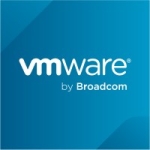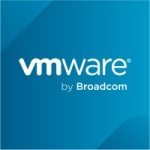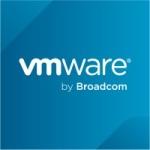What is our primary use case?
We are primarily using the solution as real-time streaming to our data-lake. We also have microservices publishing to APIs. It's a customer 360 application.
We also used the product for migration from on-prem Hadoop to AWS EMR.
How has it helped my organization?
We used to spend about $57,000 on-perm with another solution. Then we lifted and shifted to AWS. It came down in cost to about $33,000 while maintaining the same inner software with Apache Kafka. However, we then got into ECS Fargate, and that brought costs down further to about $22,000. When we removed ECS, we moved into a serverless Lambda for 45 million, and our billing is now $8000 per month. It's an amazing amount of savings.
What is most valuable?
The solution's API Gateway is very good.
The storage on offer is excellent.
Recently they improved a lot in the analytics that they have on the backend.
It's great that the product is completely serverless.
The implementation for end-to-end, for Lambda serverless implementation, is excellent. I do run about 16 million messages per day with their Lambdas, for my API microservices.
The initial setup is not difficult.
What needs improvement?
We get a lot of exception errors, and we're working with AWS to figure out how to fix that. when we lift and shift . We get a lot of alerts.
As our serverless Lambda is maintained by AWS, in a certain aspect, we need to gain some more visibility into what is going on when problem happens with AWS serverless
Their metadata management in AWS needs improvement. They need a centralized metadata management tool, where it can be integrated with outside metadata tools with the API. We really need a central metadata framework.
For how long have I used the solution?
I've been using the solution for four years. It's been a while at this point.
What do I think about the stability of the solution?
The stability of the solution is very good. there are no bugs or glitches. it doesn't crash or freeze. It's reliable. That said, initially, we did have a few problems, however, everything has ironed out. It's great now.
What do I think about the scalability of the solution?
Scalability-wise, the product is very good. The Lambdas and the serverless architecture are very good on AWS. If a company needs to expand, it can do so with ease.
We have a lot of APIs, and we'll run them on my customer 360. There are six departments that use the product. We have about 1,000 users currently.
How are customer service and technical support?
We've dealt with technical support in the past and have not been satisfied for the most part. Azure's technical support is much better. AWS often can't help us resolve our issues. But they brought some good consultants basing on our request and helped us . The account Manager always there when he took over this account .
i recommend IAAS AWS , for IPAAS ( integration as platform service) and Hybrid cloud Azure
Which solution did I use previously and why did I switch?
We've also planed for Azure. We've found Azure to be much more helpful when dealing with issues than AWS has been. I prefer them over AWS in support , application development and integration as platform. But AWS has great products like S3 , API gateway , transit gateways , route 53 . AWS has more OS options than AZURE and database offerings. their EMR is good with spark and python but not well supported for Scala and HBase. AWS serverless offerings are very good with out any major problems which includes ECS with fargate and EKS . But we got a good support from account manager
How was the initial setup?
The initial setup is not complex. When we lifted and shifted faced lot of problems on EMR. Moved to ECS, as well as serverless Lambda, it's was that difficult then. That said, we had to think about how we run our Lambdas, and what problems we are facing or might face.
We're also facing a few problems due to the fact that we use encryption, HCM. When we initially started loading this data, batch data, a lot of Lambdas came, and our limit in HCM is only about 5,000 a minute, however, it quickly jumped up to 20,000 which made it so that we could not load, and errors came up. We had to turn to AWS to get assistance. We just ask them if we can have space over a few days for 20,000 and then they scale it back to 3,000. they helped us
In terms of the implementation strategy, ours took about eight months. The lift and shift happened within 3 months. Then, we took another four months as we had a lot of problems with our scale-up programming due to multiple issues - for example, libraries, EMR, AWS doesn't have. We faced some problems when we had to change our code according to AWS, or we have to bring in those libraries on our own. So that's where it took time, maybe four months.
For ECS, it took about 30 days to move everything we needed to.
We don't have a lot of staff to maintain the product. We have about eight people who are capable of doing so. For example, we have someone on infrastructure, who is an architect and we have an enterprise architecture team. I have four developers, two for API and two for Lambda, and one is a systems admin.
What about the implementation team?
Initial setup environment helped by AWS free . We were able to handle every aspect of the implementation in-house. We didn't need any consultants or integrators. We used our systems manager so that all of our deployments - including environments and keys - can be stored on our SSM. A lot was automated as well.
What was our ROI?
excellent in covid -19 situation .
What's my experience with pricing, setup cost, and licensing?
We saw a lot of cost savings when we switched over to AWS. It can really save a company a lot of money.
Which other solutions did I evaluate?
What other advice do I have?
I'm a user and implementer.
The solution is on the cloud; it's always the latest version. It's constantly being updated, and we're always using the latest version.
We use both public and hybrid clouds as deployment models.
I'd rate the solution at a seven out of ten.
Which deployment model are you using for this solution?
Public Cloud
If public cloud, private cloud, or hybrid cloud, which cloud provider do you use?
Amazon Web Services (AWS)
Disclosure: My company does not have a business relationship with this vendor other than being a customer.






















